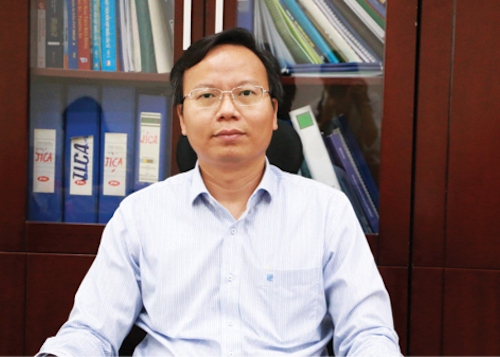In late 2018, the Center for Technology Research and Industrial Equipment, belonging to the HCMC University of Science and Technology turned to Ho Chi Minh City Science and Technology JSC after getting a business registration certificate.

Mai Thanh Phong, rector of the HCMC University of Science and Technology
The newly established company has charter capital of VND4 billion, of which 28 percent is being held by the university. Before becoming a joint stock company, the center had revenue of VND150 billion.
This is the first science and technology JSC converted from a science & technology institution belonging to a university in Vietnam.
Universities in recent years have been paying higher attention to research activities. However, very few research outcomes have been applied in reality to create useful products.
According to Dr Mai Thanh Phong, rector of the university, few research works have potential for commercial development.
|
Vietnam lacks institutions with sufficient capability to support the commercialization in a professional way. Moreover, not many enterprises consider science and technology as key in their production and business activities. |
Vietnam lacks institutions with sufficient capability to support the commercialization in a professional way. Moreover, not many enterprises consider science and technology as key in their production and business activities.
The state is aware of the problems, but the situation has not improved considerably because of the unreasonable budget allocation scheme.
In most cases, businesses want to see technological products’ effects clearly. However, this is impossible, because researchers’ findings can be effective in the laboratory only and still take a long time to bring findings to businesses.
“Therefore, it is necessary to set up professional commercialization institutions,” Phong concluded.
Nguyen Thanh Tan from Sai Gon University commented that Vietnamese enterprises now mostly use import technologies. Domestic institutes and universities are capable of inventing technologies if there is a technology market.
In fact, universities themselves have technology transfer centers, in charge of commercializing research results. However, the centers cannot bring desired effects, because these are state-owned science organizations which have limitations in their operation, investments and resources.
The establishment of the joint stock company, and other companies in the future, is expected to help fix the problems.
The Ministry of Education and Training (MOET) has released a draft decree guiding the implementation of the amended Higher Education Law, under which the revenue from science and technology activities of universities must not be lower than 25 percent of total revenue.
Analysts commented that the requirement, once approved, will put pressure on universities and force them to accelerate scientific research and technology transfer activities.
More recently, the HCMC University of Social Sciences and Humanities has put into operation the Tourism and Scientific Services Company (TASS) which serves training and research and contributes to community development.
RELATED NEWS
Vietnam university spin-offs: still a long way to go
University spin-offs difficult to establish because of outdated thinking
Mai Thanh
 Switching research centers to joint-stock companies will help attract private investments and create a driving force for commercializing research results, experts say.
Switching research centers to joint-stock companies will help attract private investments and create a driving force for commercializing research results, experts say.